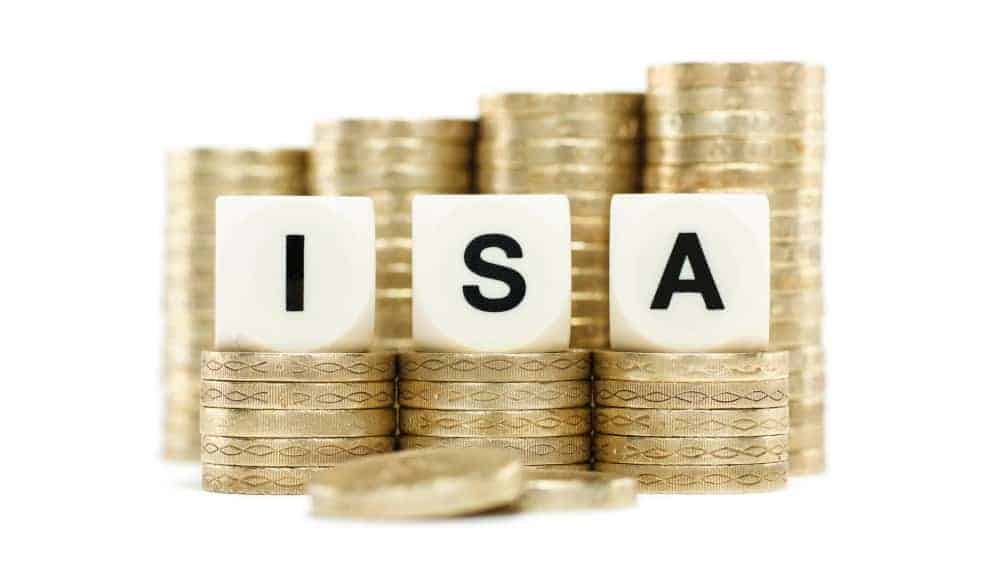I vividly remember opening my Stocks and Shares ISA many years ago. While a little daunting at the time (“How on earth does the stock market work anyway?“), I’d do exactly the same thing if I were thinking of getting started with investing now.
Why invest via a Stocks and Shares ISA?
With such an ISA, by far the biggest incentive for me is that any profits I make are free from capital gains tax. Call me miserly but I’d rather hand as little as possible back if I’ve taken on the responsibility of growing my wealth.
5 Stocks For Trying To Build Wealth After 50
Markets around the world are reeling from the coronavirus pandemic… and with so many great companies trading at what look to be ‘discount-bin’ prices, now could be the time for savvy investors to snap up some potential bargains.
But whether you’re a newbie investor or a seasoned pro, deciding which stocks to add to your shopping list can be a daunting prospect during such unprecedented times.
Fortunately, The Motley Fool UK analyst team have short-listed five companies that they believe STILL boast significant long-term growth prospects despite the global upheaval…
We’re sharing the names in a special FREE investing report that you can download today. And if you’re 50 or over, we believe these stocks could be a great fit for any well-diversified portfolio.
The tax benefits of an ISA don’t stop there. In addition to not paying any tax of profits, I’m also not required to pay anything back for dividends I receive, assuming the investment I hold pays them.
Please note that tax treatment depends on the individual circumstances of each client and may be subject to change in the future. The content in this article is provided for information purposes only. It is not intended to be, nor does it constitute, any form of tax advice. Readers are responsible for carrying out their own due diligence and for obtaining professional advice before making any investment decisions.
Here’s what I’d buy
With £50 a month to invest, I’d start with buying an exchange-traded fund (or ETF).
An ETF simply tracks the return of the stock market. To give an example, the FTSE 100 index, which features the UK’s biggest companies, returned 14.3% in 2021. An ETF tracking the FTSE 100 would return almost exactly the same (once costs are factored in).
Buying an ETF would make particular sense to me as a newbie investor because my money would be spread between lots of different companies. While this won’t stop the value of my investment from falling in tough times, there are none of the risks that come from buying shares in a single business.
Clearly, I’m not obligated to buy a fund tracking the FTSE 100. There are actually a huge number of ETFs available following all sorts of markets and types of stock.
Nor must I stick to buying only these funds (although many people like to keep things simple and do). Once I became more confident in how the market works, I can expand my portfolio to include other assets.
Keep fees low
It’s worth saying a little more about fees. Since it’s essentially managed by a computer rather than a human (aka a passive fund), an ETF’s fees tend to be low. Over years, this really matters. It means more of my money is allowed to compound.
I’d also take advantage of my broker’s ‘regular investing’ service. This invests my money on a set date each month rather than immediately. As a result, my commission fees (what it costs to buy or sell a fund or stock) are roughly 10% of what they normally would be. Again, these savings add up over time and allow more of what I put in to grow in value.
Any downsides?
For me, there’s aren’t many downsides to opening a Stocks and Shares ISA. Still, let’s have a go at scraping the barrel.
One fairly obvious cost is having less cash to spend today. There’s no way of getting around this other than to earn more and/or reduce my spend. Becoming an investor also requires patience. This is no ‘get rich quick’ scheme.
The good news is that investing for the long term quickly becomes a habit. In fact, knowing that money I put away now might/should become a great nest egg eventually makes the process rather addictive.
And of course, we’re talking about £50 here. I could potentially accumulate a lot more wealth by increasing the amount I set aside every month.
Inflation Is Coming: 3 Shares To Try And Hedge Against Rising Prices
Make no mistake… inflation is coming.
Some people are running scared, but there’s one thing we believe we should avoid doing at all costs when inflation hits… and that’s doing nothing.
Money that just sits in the bank can often lose value each and every year. But to savvy savers and investors, where to consider putting their money is the million-dollar question.
That’s why we’ve put together a brand-new special report that uncovers 3 of our top UK and US share ideas to try and best hedge against inflation…
…because no matter what the economy is doing, a savvy investor will want their money working for them, inflation or not!
Best of all, we’re giving this report away completely FREE today!
Simply click here, enter your email address, and we’ll send it to you right away.
Paul Summers has no position in any of the shares mentioned. The Motley Fool UK has no position in any of the shares mentioned. Views expressed on the companies mentioned in this article are those of the writer and therefore may differ from the official recommendations we make in our subscription services such as Share Advisor, Hidden Winners and Pro. Here at The Motley Fool we believe that considering a diverse range of insights makes us better investors.
This post was originally published on Motley Fool







